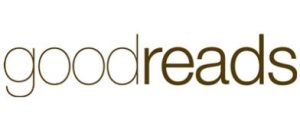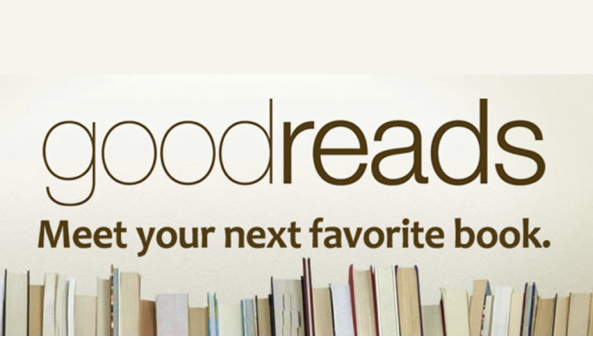I will admit that when I first heard of Goodreads,I liked the concept, and Goodreads has done a really good job on their database and interface, so much so that their nearest competitor, LibraryThing, which has some advantages and better features, is still far behind in popularity. Purportedly meant as an app to bring readers and authors together, most authors I know use it more as a reading research and library tracker than for any meaningful interaction with fans. There have been exceptions, Michael Sullivan being notable among them (though I haven’t taken time or effort to verify his claims of successes there to be fair). But I can count on one hand the number of authors I know who have told me of meaningful interaction there with fans. In part this is due to the trolling nature of Goodreads readers who can be quite cruel in their bluntness and shortsighted in the insight their reviews provide. After a few such experiences, most authors just stop reading the reviews and develop a distaste for interacting with those types of people, even if they do luck into positive reviews from them. Most of us instead used Goodreads to track our reading, generally gauge reader responses, and as a resource for giveaways to fans. But Goodreads did even the playing field by providing a way for indie authors and small presses to get their books more prominently noticed by a larger readership, and that in and of itself was a huge benefit and blessing to many of us. And made time invested in Goodreads more than worth the effort. The promise was more reviews, although in my experience, I garnered a very small boost in reviews from the giveaways I did.
Then Amazon bought Goodreads and all of a sudden they started charging a few hundred dollars for giveaways, immediately making giveaways unaffordable for most indies and small presses while favoring the big names who already get all the advantages. One of the nice things about Goodreads giveaways being free was it allowed indies and small presses to play equally alongside the big boys at attracting reader attention. That is no longer the case with the new policy. But other developments with Amazon’s arrival have been even more insidious. Torrent links began showing up more and more in comments and as actual groups and getting them removed became a major ordeal requiring many emails and DCMA notices as well as much frustration of the authors or presses involved.
 And now it appears, Goodreads allows authors to create fake profiles in the name of other authors to troll authors the creators disapprove of with really nasty reviews. I can tell you that it is always perilous as an author to review peers. As such, I learned long ago not to post any review that was below three stars publicly. So if you ever see a review below three stars bearing my name on a book, it is fake. But not everyone cares about relations with their peers as I do, and with this current rise of trolling fakes, the problem is exploding by leaps and bounds. Goodreads will remove fake accounts if you can make a good case proving they are fake and get enough people to join you in complaining, but it is not easy and in many cases, the damage may have already been done. Unless something has changed, just because accounts are removed, doesn’t mean all their reviews disappear. Many times I encountered them listed under labels such as “Inactive Account” or other such monikers. Someone has to actually undertake cleanup behind the scenes which requires effort and time, something Goodreads is stingy with when it comes to assigning employees, in my experience and that of many others I have talked to.
And now it appears, Goodreads allows authors to create fake profiles in the name of other authors to troll authors the creators disapprove of with really nasty reviews. I can tell you that it is always perilous as an author to review peers. As such, I learned long ago not to post any review that was below three stars publicly. So if you ever see a review below three stars bearing my name on a book, it is fake. But not everyone cares about relations with their peers as I do, and with this current rise of trolling fakes, the problem is exploding by leaps and bounds. Goodreads will remove fake accounts if you can make a good case proving they are fake and get enough people to join you in complaining, but it is not easy and in many cases, the damage may have already been done. Unless something has changed, just because accounts are removed, doesn’t mean all their reviews disappear. Many times I encountered them listed under labels such as “Inactive Account” or other such monikers. Someone has to actually undertake cleanup behind the scenes which requires effort and time, something Goodreads is stingy with when it comes to assigning employees, in my experience and that of many others I have talked to.
So I have to say I am questioning the usefulness of Goodreads to authors more and more. Is this really the type of site and community we want to invest our time and energy into? Especially when it is seems to become more anti-author or at least non-author friendly by the day? I am curious what other authors use Goodreads for besides the uses I mentioned. What experiences have you had? Is it worth the hassle or do you just use it as I do—a glorified reading database—and ignore the rest? Is this something you actually find useful to invest time in or would finding an alternative be desirable? If LibraryThing overhauled and improved their interface enough would you be more active there or just switch loyalties altogether?
Look forward to people’s thoughts on this. I think Goodreads has outlived its usefulness but I am curious if others have reached the same conclusion. For what it’s worth…
[NOTE: Comments are moderated and only constructive, non-trolling responses will be allowed. The rest will be summarily denied and deleted. This is meant to provoke meaningful, helpful discussion, not an online flame war.]


Back when I was actively writing reviews… I told the authors I’d meet at RWA or elsewhere that they’d NEVER see a review for 3 or under… they’d get an email from me explaining my issue with the book.. I won’t trash an author who is having a bad day..
Trashing each other is not wise for lots of reasons. It’s unkind, unsympathetic, and it risks alienating someone you might later regret. As an editor who hires a lot of authors, I can’t afford to risk, and I don’t see what service my trashing their book would accomplish besides making them feel bad, whereas a private critique with productive criticism might do a world of good, even steeling them for harsher reviews they might get from others while also showing them respect by not embarrassing them. I certainly appreciated it when people handled me that way.
I pretty much only use Goodreads as a reader, although I believe every book I’ve had the privilege to be in is listed on Goodreads. I skim other readers’ reviews to see if my thoughts on a book are common or unusual. I can’t remember the last time I posted a rating lower than three stars (which I view as “I liked it” but many authors seem to view the same as 1 star), mostly for the reasons you mentioned.